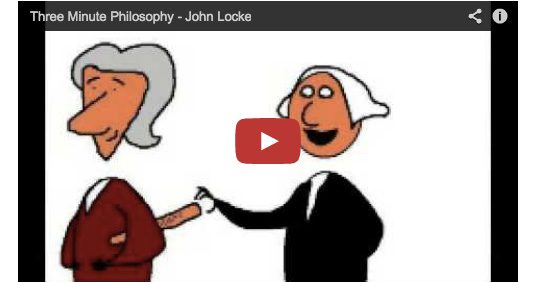 John Locke (August 29, 1632–October 18, 1704) is celebrated as the father of Liberalism, one of The Enlightenment’s greatest minds, and a pioneering British empiricist. Locke’s legacy lives on most memorably in the American Declaration of Independence and his theory of mind, the first to define the self through self-contained consciousness beginning with a tabula rasa at birth, is a foundation for much of today’s thinking on identity and selfhood. His timeless work is all the more relevant today — a parallel to his insistence on separation of powers between church and state exists in today’s debate about keeping corporation and state separate; the near-plagiarism of his ideology by the Founding Fathers in the Declaration of Independence raises questions of remix culture and intellectual property; and his rational case for cross-faith tolerance carries a message of exponential urgency today.
John Locke (August 29, 1632–October 18, 1704) is celebrated as the father of Liberalism, one of The Enlightenment’s greatest minds, and a pioneering British empiricist. Locke’s legacy lives on most memorably in the American Declaration of Independence and his theory of mind, the first to define the self through self-contained consciousness beginning with a tabula rasa at birth, is a foundation for much of today’s thinking on identity and selfhood. His timeless work is all the more relevant today — a parallel to his insistence on separation of powers between church and state exists in today’s debate about keeping corporation and state separate; the near-plagiarism of his ideology by the Founding Fathers in the Declaration of Independence raises questions of remix culture and intellectual property; and his rational case for cross-faith tolerance carries a message of exponential urgency today.
To celebrate his birthday, here’s a piece of priceless edutainment from the brilliant Three Minute Philosophy series (previously).
If you’d rather spend more than three minutes on one of humanity’s most influential thinkers, do so with The Selected Political Writings of John Locke and Lee Ward’s excellent John Locke and Modern Life, which examines the impact of Locke’s legacy on contemporary culture.



